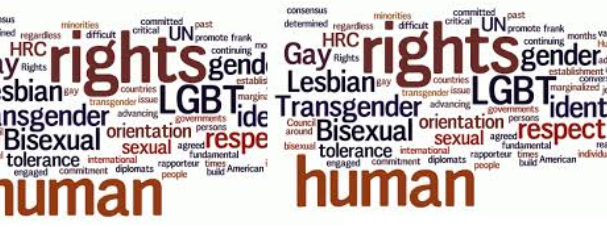by Aritha Wickramasinghe.
I was born in 1984 at St Michael’s Nursing Home in Colombo, Sri Lanka. Then a small, but bustling metropolis, Colombo had already experienced its first taste of societal division. In 1983, race riots largely targeting the Tamil minority population engulfed this once picture perfect paradise in flames — flames which would continue to torch the land that was my home for the next 26 years. Sri Lanka’s civil war ended 100,000 lives and destroyed much more than that. It destroyed our hope, our faith in justice and above all, it destroyed the belief that we were all equal.
When the war finally ended in one of the most brutal and violent manners possible, there was in some cruel way, a sense of relief. A sensation that rapidly spreads through your body: a shiver of hope that the long-held fear may finally be a thing of the past. But 2009 did not see the end of prejudice and the rise of liberty. The next five years saw the most rapid decline of civil liberties, democracy and the rule of law in Sri Lanka’s history. The island that was Asia’s oldest democracy and which produced the world’s first female Prime Minister was sinking fast.
On January 8 2015, when democracy was all but extinguished, Sri Lankans made a historic decision. They chose freedom over fear, equality over indignity and fairness over injustice. President Maithripala Sirisena’s election was a landmark event. Millions were inspired by a message of a just peace and the promise of a country based on equality. It seemed like change was finally at hand.
But as we pass the first anniversary of that fateful election, President Maithripala and Prime Minister Ranil Wickremasinghe’s promise of not leaving anyone behind in their new, fairer Sri Lanka leaves much to be desired. Although free speech has flourished and fear has dissipated, some remain invisible, shrouded in fear, in a society that continues, in 2016, to criminalize them purely on the basis of who they love.
Sri Lanka remains a darling of the international community despite continuing to criminalize same-sex relations between consenting adults. Articles 365 and 365A of the island’s penal code — both legacies of the British Empire — ban “gross indecency” and “carnal intercourse against the order of nature”. Although the lesbian, gay, bisexual and transgender (“LGBT”) community are rarely prosecuted under these vague laws, their mere existence has enabled generations of systematic abuse, harassment and discrimination against the island’s LGBT community. As an out gay teenager in Sri Lanka, I witnessed the fear that everyone like me lived in: the fear of a system that was never going to be on your side because your mere existence is treated with contempt. In 2016, we have the opportunity to change this.
From January 19 to 22, a delegation from the EU will be visiting Sri Lanka to re-start negotiations on Sri Lanka’s accession to GSP+. The GSP+ scheme is a component of the EU Generalized Scheme of Preferences for developing countries. It offers additional trade incentives to developing countries to implement international conventions on human and labour rights, sustainable development and good governance. One of the key covenants which eligible countries must abide by is the International Covenant on Civil and Political Rights (“ICCPR”). The Human Rights Committee, which was set up to overlook the implementation of the ICCPR, held in the case of Toonen v Australia that states could not discriminate on the basis of sexual orientation. Tasmania’s penal code, which criminalized same sex relations (and is near identical to Sri Lanka’s), breached the ICCPR.
However despite it being very clear that decriminalization of homosexuality is a requirement of the full implementation of the ICCPR and thus accession to GSP+, it is not on the EU’s agenda for its visit to Sri Lanka. The EU claims at home to be a champion of human rights and to protect minorities, but apparently this principle does not apply further afield.
All Sri Lankans hope and aspire for a better future, shared with our loved ones, the ones whom we freely choose to love. If we, Sri Lankans, are to move ahead as a nation, we need to create a society where we can all live in dignity, a society that is just and free. Until we do, the promise of our new nation can never be realized.
Aritha Wickramasinghe is a Banking Lawyer, Human Rights Activist, Adventurer. /HP
